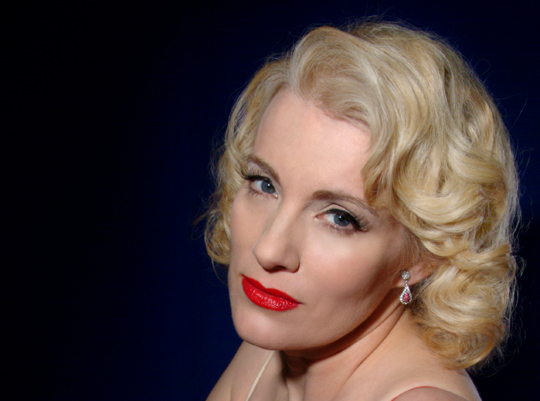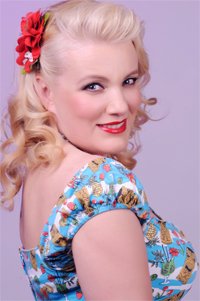 Before stunning us with her DC Gary Goodhew series of crime fiction novels, Alison Bruce used to write history books such as Cambridgeshire Murders and Billington: Victorian Executioner. A touch macabre perhaps, but also a perfect source of inspiration for her later creations. Her most recent Goodhew story, The Silence, was most impressive, so we asked her in to tell CFL about herself and her work…
Before stunning us with her DC Gary Goodhew series of crime fiction novels, Alison Bruce used to write history books such as Cambridgeshire Murders and Billington: Victorian Executioner. A touch macabre perhaps, but also a perfect source of inspiration for her later creations. Her most recent Goodhew story, The Silence, was most impressive, so we asked her in to tell CFL about herself and her work…
First off, what inspired you to write about a Victorian hangman?
After Cambridgeshire Murders, Sutton Publishing asked me for a second book. One of their books was Executioner, the biography of James Berry, by Stewart Evans. Berry’s successor, Billington had not only been prolific but, with three of his sons, executed 235 prisoners by the time their reign came to an end. Billington, Victorian Executioner was the most disturbing book I’ve written. The research revealed horrific stories that stayed with me for longer than I would have liked.
Why is Gary Goodhew still a DC? Will he look for promotion?
When Goodhew was 11 his parents inherited a substantial sum after the death of his grandfather. Goodhew and his sister were sent to boarding school where neither of them was happy. He lost himself in crime fiction and noir movies and nurtured the ambition to be a detective. Fulfilling a childhood ambition is a mixed blessing, and the conflicts between toeing the line and doing the right thing drive Goodhew’s story. This would be less relevant if I had introduced Goodhew later in his career. The cases have an impact on Goodhew. No one can deal with these kinds of crimes and be unaffected, but it is inevitable that he ends up being some combination of burnt out, alcoholic, depressed, unhealthy or lonely. Only time will tell. Promotion isn’t something Gary has any desire to chase at the moment.
If someone decided to make a TV series based on your books, who should play him, and his grandmother?
My books being filmed would be very exciting. One of the most frequent compliments I get is: ‘it reads like a film‘. Who would play Goodhew is tricky. I have one actor in my head and I have a photograph of him that is exactly as I see Gary. I’m not going to spill the beans but I keep that picture on my mobile phone! As for Goodhew’s grandmother, she’s in her late 60s and definitely of the ilk of Honor Blackman.
 You are good at portraying female characters, many of whom are rather querulous young ladies. Do you empathise or sympathise with these characters?
You are good at portraying female characters, many of whom are rather querulous young ladies. Do you empathise or sympathise with these characters?
At school I was incredibly introverted. I am the youngest of five children by 11 years. I grew up like an only child but with little contact with other children. Consequently I found it very hard to form relationships. Although I had no desire to be an author then, I began creating fictitious people and scenarios. I hated being too shy to ask for something in a shop or speak up if I wasn’t happy. It was so much easier to stay quiet, but in my imagination I could be Veronica Lake, Nancy Drew and even Kelly Garrett from Charlie’s Angels. This shyness and the alternative reality running in my head was what fuelled my story creation. In my early 20s I decided I’d had enough and set about changing my attitude to life, dyeing my hair blonde and tackling things head on. That doesn’t mean I’m not conscious of what it is like to stay silent and feel invisible. Many of my characters are strong women but they don’t necessarily discover it until they have to face some ordeal. I am usually willing them to see their world in a different light… unless I murder them first.
Someone has said your books ‘do for Cambridge what Colin Dexter did for Oxford’. How do you respond to that?
My books have a different take on Cambridge from Colin Dexter’s Oxford, but despite all the previous Cambridge-based novels, there is no detective as synonymous with Cambridge as Morse is with Oxford. I would love it to be Goodhew, but it’s early days.
When you begin a book, is everything planned out so that you know exactly who did what and why it happened?
Minette Walters says that when someone commits a crime she puts characters in a scenario, and she lets them drive the story without her knowing who the killer is. This sounded a creative way to write a book until I tried it. It wasn’t for me and I have never thrown away so many words! I plot the book as a whole and then through the eyes of each character to make sure their motivation is accurate at each point. Throughout the book I will know the killer, their motivations and the way the unfolding story is making them alter their behaviour. I won’t always know the details of what happens in the scenes I plan, or the point of view from which the scene takes place, but I know the destination I need to reach for the start of the next scene. Within this framework I can deviate in any direction, and it’s that space for spontaneity that can result in some of the most exciting scenes.
What have you been reading?
My most recent reads have been Steve Mosby’s Still Bleeding and Cath Staincliffe’s Witness. Both are fantastic authors. I’m a big fan of Harlan Coben. He is very clever with his use of point of view. My best ever reading moment was the opening page of RJ Ellory’s A Quiet Belief in Angels. At a holiday complex waiting for my family, I found it amongst a selection of books left on a shelf. I reached the bottom of the first page and had this sense of needing to keep reading immediately. Even after I’d finished the book it stayed with me. I emailed Roger, and in the end our conversation resulted in him giving me a quote for the cover of Cambridge Blue.
I love the soundtrack item at the end of The Silence. How about writing a novel set in late 50s or early 60s?
I have five future books in my head at the moment, and one is set in Hawaii 1961. Hawaii had become the 50th state and was one of the most exotic tourist spots in the world. With the war in the Pacific still fresh in the islanders’ memories and an influx of newcomers, it is the ideal hunting ground for a private detective searching for a fugitive. Besides, I fancy doing the research…








